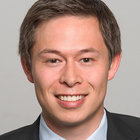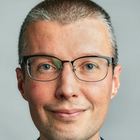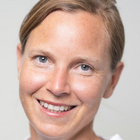Policy Brief
Tomorrow’s global development landscape: mapping trends and reform dynamics
Janus, Heiner / Niels Keijzer / Svea KochPolicy Brief (4/2024)
Bonn: German Institute of Development and Sustainability (IDOS)
DOI: https://doi.org/10.23661/ipb4.2024
The key tools and governance approaches for international cooperation for sustainable development (hereafter, international cooperation) were set up in a markedly different time and age. International cooperation – with official development assistance (ODA) as the dominant means of implementation – remains key, despite being generally considered as no longer adequate for addressing today’s common and collective challenges. Despite numerous declarations of its growing irrelevance or calls for it even being beyond repair, the governance and reporting system of ODA has remained largely unchanged throughout its 60 years of existence. One reason is that there are few alternatives. Pandemic response and preparedness, climate finance, humanitarian aid, the United Nations development system as well as the budgets of the multilateral development banks all by and large remain dependent on ODA. New and additional sources of development finance have been slow to materialise and run the risk of remaining time-bound and ad-hoc, as illustrated by recent discussions on Special Drawing Rights, debt swaps and green bonds. While other actors, such as providers of South-South Cooperation (SSC), and non-governmental actors are increasing and gaining importance, they are only to a limited degree institutionalised. In the absence of transparent and coherent methodologies for monitoring their actions, concrete financial volumes remain hard to assess. This paper analyses structural factors of the institutional inertia in international cooperation and formulates expectations for where new reform impetuses might arise from. To this end, it maps and links key reform proposals for the global development system, with a specific focus on public financial flows consisting of three connected parts. The first part concerns current forms of and reporting processes for ODA, climate finance and SSC. These concern well-established, albeit path-dependent, forms of international cooperation with different types of multistakeholder settings and different levels of institutionalisation. Here, we do not expect fundamental reforms given various entrenched interests and expect that the nexus between climate finance and ODA will be the main driver for change. The second part of our mapping consists of what we call “global first” reform ideas. These ideas begin with a problem-oriented approach at the global level and aim at setting up new, universal financing schemes and redesigning institutional structures for that purpose. While the ideas in this category are still in their initial stage, we regard them to be particularly relevant for conceptualising the “demand-side” of reforms (i.e., “what would be needed?”). Here, we predict that the more ambitious reforms for creating universality of contributions and benefits at the global level will not materialise. However, these concepts play a key role in influencing the future orientation of specific existing (multilateral) institutions. The third part of our mapping entails positioning current multilateral and bilateral development organisations located between the first two parts. We observe that these organisations experience a gravitational pull towards both directions of reform, namely focusing on global public goods versus prioritising the (countries) left behind, often with competing incentives and trade-offs between national and global development priorities. We expect that a reform of bilateral development actors will lag behind in the broader policy field due to their domestic political constraints, whereas multilateral development banks will generate greater reform momentum (and be pushed by their stakeholders) as first movers.
Contact
Cornelia Hornschild
Publication Coordinator
E-mail Cornelia.Hornschild@idos-research.de
Phone +49 (0)228 94927-135
Fax +49 (0)228 94927-130
Alexandra Fante
Librarian/ Open Access Coordinator
E-Mail Alexandra.Fante@idos-research.de
Telefon +49 (0)228 94927-321
Fax +49 (0)228 94927-130






![[Translate to English:] Photo: Alexandra Fante, Bibliothekarin/Open Access-Koordinatorin](/fileadmin/_processed_/f/0/csm__c_Deutsches-Institut-fuer-Entwicklungspolitik_Fante_94ce4fa1ba.jpg)